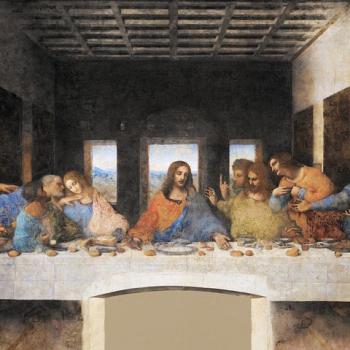
In Islam, Muslims have to fulfil five obligatory duties bestowed upon them — Shahadah (profession of faith), Salat (prayer), Siam (fasting), Zakat (charity), and Hajj (pilgrimage). As you see, fasting is one of the five pillars of belief for all Muslims. And, fasting is obligatory during the month of Ramadan.
What is Fasting in Islam?
Fasting is a state in which a Muslim abstains from food, drink, and sexual intercourse from dawn to dusk. This also includes smoking cigarettes or hookah, chewing gums, and taking medication either orally or through an IV. Apart from abstaining from these, Muslims are also instructed to refrain from sinful behaviour that may negate the reward of fasting like jealousy, gossiping, anger, swearing, fighting, and speaking lies. Also, indulging in acts like listening to music and watching movies or obscene acts is prohibited.
Fasting is a state in which a Muslim needs to work on his spiritual self by reciting the Quran as much as possible, increasing charity to the needy, extra praying, and making abundant dua (supplication).

These rules help Muslims redirect the heart away from worldly activities, cleanse the soul and build a connection with Allah(SWT).
“The Prophet Muhammad (PBUH) is reported to have said: “Fasting is a shield. When one of you is fasting, he should abstain from sexual intercourse and quarrels.”
“In another Hadith, the Prophet Muhammad (PBUH) said: “If someone slanders you or treats you badly, then say, ‘I am fasting.'”
This means when someone treats you badly, don’t treat them back in the same way and execute self-control while fasting.
When Do Muslims Fast?
It is obligatory for Muslims to fast during the month of Ramadan. It’s the ninth month of the Islamic calendar and is observed by Muslims worldwide as a month of fasting (siam), prayer, reflection, and community. This month lasts 29–30 days based on the visual sightings of the crescent moon. This is the month when the holy book -The Quran was revealed as the guide for humanity as we know from the verse:
“Ramaḍân is the month in which the Quran was revealed as a guide for humanity with clear proofs of guidance and the standard ˹to distinguish between right and wrong˺. So whoever is present this month, let them fast. But whoever is ill or on a journey, then ˹let them fast˺ an equal number of days ˹after Ramaḍân˺. Allah intends ease for you, not hardship, so that you may complete the prescribed period and proclaim the greatness of Allah for guiding you, and perhaps you will be grateful” Quran (2:185)
It says that when Ramadan comes upon you then you need to fast. But men and women who are traveling or are ill are exempted. Fasting is also exempted for pregnant, menstruating, and breastfeeding women. But they have to make up for the missed fasts later when in good health or state. As Allah(SWT) wants ease, not a hardship on his creation.

Another hadith related to Ramadan is
The Prophet Mohammed reportedly said, “When the month of Ramadan starts, the gates of heaven are opened and the gates of hell are closed and the devils are chained.”
This means that during Ramadan Allah(SWT) will chain the devils so they don’t mislead the Muslims by whispering to them. And they can make the most of this month by gaining the creator’s rewards and mercy.
But, fasting in Islam is not unique to the month of Ramadan. Muslims are encouraged to fast on other days throughout the year whenever possible. This is called nafl siam (optional fasting). This is not obligatory but recommended to earn extra rewards.
As we know from the hadiths:
Abdullah Ibn Amr (Ra) narrated that the Messenger of Allaah (PBUH) said to me, “It is sufficient for you to fast three days every month because for every good deed you will have (the reward of) ten like it, so that will be like fasting for a lifetime.” (Reference – Sahih Bukhari).
We know from authentic narrations that the Messenger of Allah (PBUH) used to fast on Mondays and Thursdays. Aisha (Ra) said, “The Prophet (PBUH) was keen to fast on Mondays and Thursdays.” (Reference -Tirmidhi).
Now that we know what is fasting and when Muslims do it. Let’s learn…
Why is Fasting Important?
There are many reasons why Muslims may fast, but the two most common are to connect and gain rewards from Allah (SWT).
Here are a few more spiritual reasons why Muslims fast:
1. To show their devotion to Allah
It is an obligation on every Muslim to fast. To fulfil this obligation is a duty of every Muslim and a way of demonstrating their devotion to Allah(SWT).
It is stated in the Quran that And it is better for you that you fast if you only knew.” (Q 2:184)
2. To purify their bodies and minds
Muslims believe that fasting purifies the body and mind. Abstaining from all the sinful acts will purify your mind and make your connection with Allah(SWT) strong. And likewise abstaining from food and water can purify your body by detoxifying it. This can lead to a more positive outlook on life and a greater sense of peace and tranquillity.

3. To feel closer to Allah
Many Muslims fast because they believe it will help them feel closer to Allah. By denying themselves the things they enjoy, they are able to focus on their relationship with their Rabb (God). They try to indulge in more acts of worship which can lead to a deeper understanding of their faith.
4. To practice self-discipline
Fasting helps Muslims to practice self-discipline. By abstaining from the necessities, they are able to control their desires and discipline themselves. They control their urge to quench their hunger and thirst or to have intercourse with their spouse while fasting or talk behind backs about people or tell lies or other negative acts. It will help to discipline themselves in a way that is loved by the creator. This can help them to lead more productive and meaningful lives.
O, believers! Fasting is prescribed for you—as it was for those before you—so perhaps you will become mindful ˹of Allah˺.

5. To gain rewards from Allah:
Muslims believe that they will be rewarded by Allah(SWT) for fasting. They believe that the act of self-denial and discipline will be rewarded in the form of paradise. This can motivate them to fast even when it is difficult, as they know that the rewards will be great.
Narrated Abu Huraira(r.a): The Messenger of Allah (saw) said:”… whoever fasts during Ramadan out of sincere faith and hoping to attain Allah’s rewards, then all his past sins will be forgiven.” (Imam Bukhari).
5. To remember and empathize with the poor and hungry:
Muslims fast to remember and empathize with the poor and hungry. By denying themselves food and water, they are reminded of those who do not have enough to eat. This can lead to a greater sense of compassion for others and a desire to help those in need.

These are the reasons why Muslims fast. But fasting doesn’t interrupt their everyday activities. All Muslims around the world go about their regular daily routine while fasting.
It is a time of spiritual reflection and growth. Muslims fast to cleanse their bodies and minds, learn patience, and increase empathy for the poor. If you have any questions about the act of fasting, please leave a comment below. I’d love to hear from you!

















